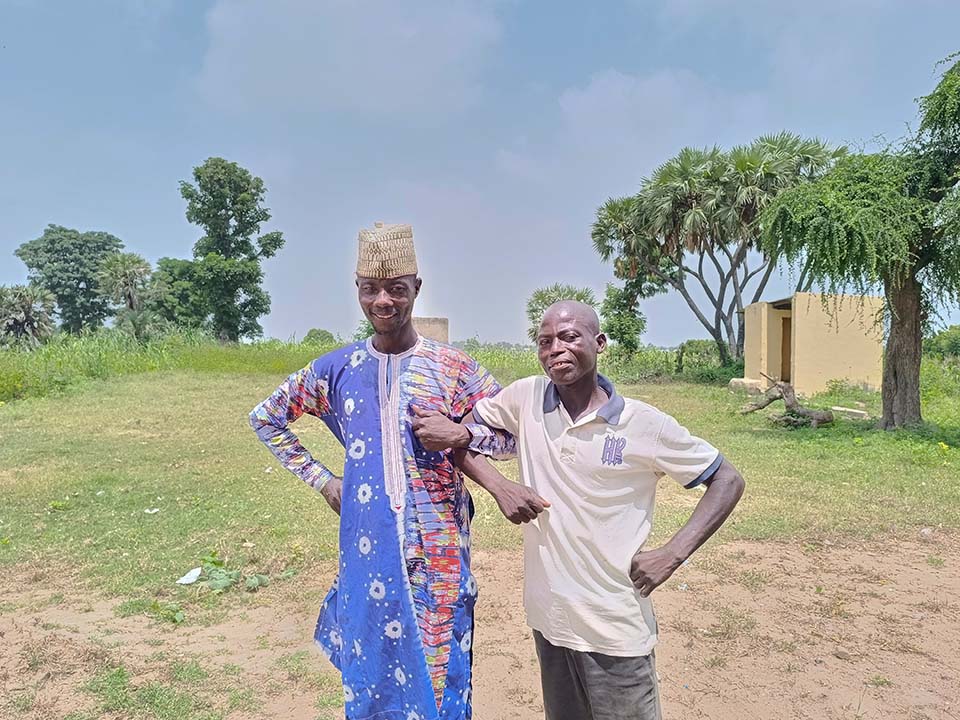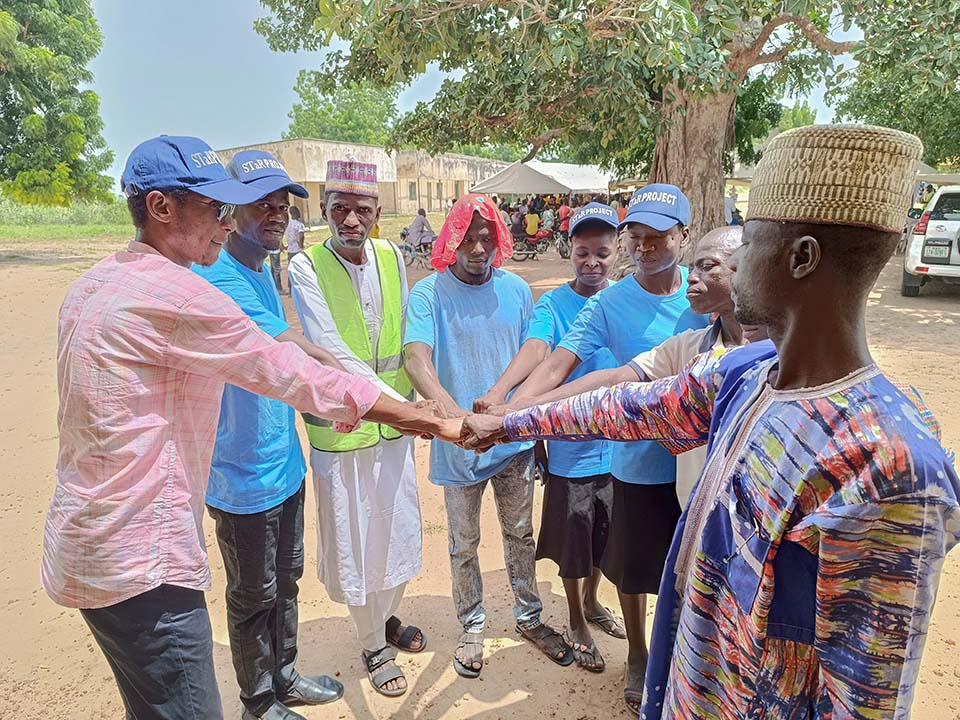
Peace Ambassadors Prevent Community Conflicts in Nigeria
The peace ambassadors in Shelleng, Nigeria, work toward unity and social cohesion—and help others find it as well.
Shelleng is one of the commercial farming communities in Adamawa State, Nigeria. Recently, two farmers and close friends there, Ayuba Kondokwara and Aminu Gamanayilu, found themselves in a dispute. Changes in climate resulted in drought for many farms, Ayuba’s farm among them. So Ayuba leased one of Aminu’s fields to plant rice and corn during the rainy season. But in floods that affected Adamawa State in 2023, Ayuba’s crops were damaged, causing a ripple effect of financial strain that led to conflict.

Ayuba, left, and Aminu, right, remain friends after working through a disagreement over farmland.
Photo by Grace Yakubu/CRS
The conflict began when, to recoup the cost of leasing farmland from Aminu, Ayuba sublet the field to a watermelon farmer—but without clearing it with Aminu first. When Aminu got wind of the arrangement, he feared the watermelon crop would drain the soil of its nutrients. So Aminu went to the farm and told the watermelon farmer to stop work on the land immediately.
Catholic Relief Services trains community members to act as peace ambassadors through the Stabilization and Reconciliation in the Lake Chad Region project, funded by the KFW Development Bank. The project stresses the importance of social cohesion, especially as it relates to conflict resolution and promoting inclusion for marginalized people.
Aminu and Ayuba’s dispute was brought to the notice of peace ambassador Silas Titus who stepped in and listened to both sides. Silas facilitated a resolution, frequently visiting both farmers’ homes until they reached an agreement. Aminu and Ayuba agreed to let the watermelon crop go to harvest with the land returning to Aminu after the rainy season.
“It’s very good to have this kind of system,” Silas says. “The role we play, preaching the messages of peace, goes to promote peace and unity in the community.”

CRS STaR project officer Harry Bwala, far left, and members of the Shelleng community peace ambassadors with Aminu and Ayuba, far right.
Photo by Grace Yakubu/CRS
Project-trained ambassadors are involved in peacebuilding and social cohesion, helping people understand the benefits of living peacefully and co-existing with people from different cultures and beliefs.
“Social cohesion is good, and I encourage CRS to continue to make it a core part of its work,” Silas says.
“I am happy with the way the ambassadors helped me resolve the conflict. We could have wasted our money going to court proceedings. And this issue would have escalated to our family and friends if not for the intervention of the peace ambassador. I am grateful,” said Ayuba.
“I appreciate CRS for running this kind of program that teaches people to know about conflict resolution and encourage CRS to take the initiative to other villages,” Aminu said.
The Stabilization and Reconciliation project, or StaR, in the Lake Chad Region of Nigeria is a KFW Development Bank project implemented by CRS that is contributing to the recovery and resilience of vulnerable populations affected by the protracted conflict in the Lake Chad Basin. Supporting 59,000 people in 90 communities, the project helps improve access to basic services such as water, health, markets, roads and education, and expands livelihoods by providing agricultural supplies and opportunities for temporary employment through cash-for-work activities. The project is also strengthening social cohesion between host communities and displaced people while strengthening local government and communities through joint local economic development, disaster risk reduction and conflict mitigation.

